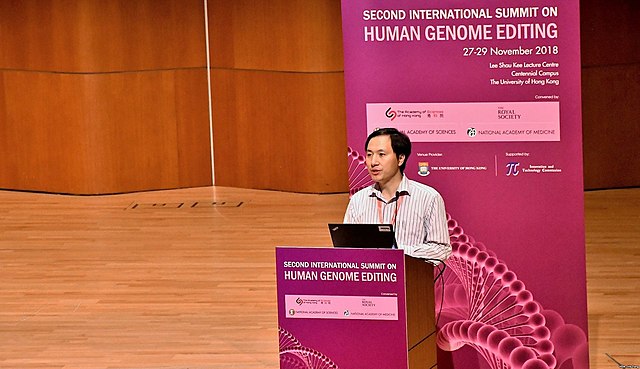The Transformative, Alarming Power of Gene Editing
By Dana Goodyear,
The New Yorker
| 09. 02. 2023
A rogue scientist showed that crispr gives humans the ability to transform ourselves. But should we?
He Jiankui, a young Chinese scientist known to his American colleagues as JK, dreamed of remaking humanity by exploiting the emergent technology of gene editing. He had academic polish, and an aptitude for securing institutional support. As a student, he had left China for the United States, where he did graduate work in physics at Rice and a postdoc in a bioengineering lab at Stanford. At the age of twenty-eight, he was recruited into a prestigious Chinese government program for foreign-educated talent, and was offered a founding position in the biology department of the Southern University of Science and Technology.
SUSTech was a newly created research institute in Shenzhen, a city in the midst of a biotech boom. JK, who arrived in 2012, likened Shenzhen’s startup culture to that of Silicon Valley—bold creativity was encouraged, and there was plenty of capital on hand. With colleagues from his lab, he often held brainstorming sessions at a café near campus, delineating his plans. In the first ten years, he would tackle a variety of genetic diseases; in the ten years after that...
Related Articles
By Scott Solomon, The MIT Press Reader | 02.12.2026
Chris Mason is a man in a hurry.
“Sometimes walking from the subway to the lab takes too long, so I’ll start running,” he told me over breakfast at a bistro near his home in Brooklyn on a crisp...
By Zachary Brennan, Endpoints News | 02.23.2026
The FDA is spelling out the details of a new pathway to help speed personalized cell and gene therapies to market for rare diseases.
Monday’s long-awaited draft guidance outlines the agency’s “plausible mechanism” framework, a pathway FDA Commissioner Marty Makary...
By Amy Feldman, Forbes | 02.17.2026
"Jennifer Doudna" by Duncan Hull for the Royal Society via Wikimedia Commons licensed under CC by SA 3.0
Soon after KJ Muldoon was born in August 2024, he was lethargic and wouldn’t eat. His worried doctors realized his ammonia...
By David Jensen, California Stem Cell Report | 02.10.2026
Touchy issues involving accusations that California’s $12 billion gene and stem cell research agency is pushing aside “good science” in favor of new priorities and preferences will be aired again in late March at a public meeting in Sacramento.
The...




